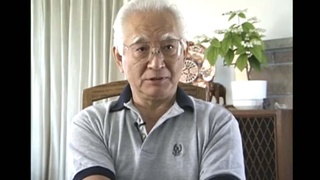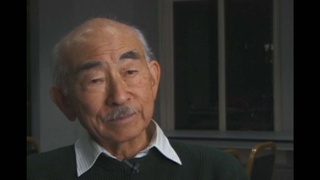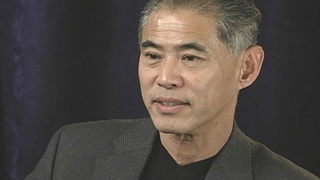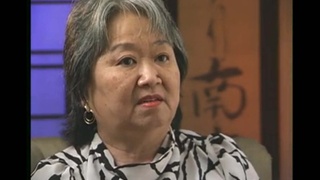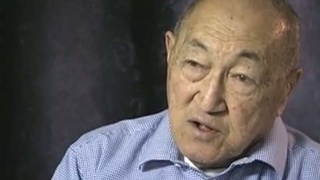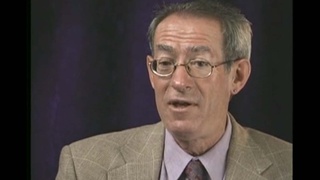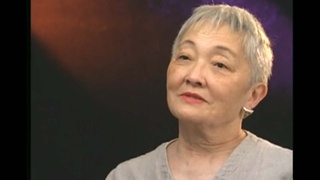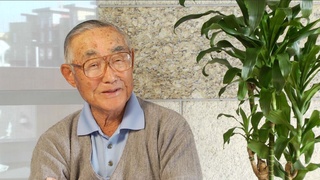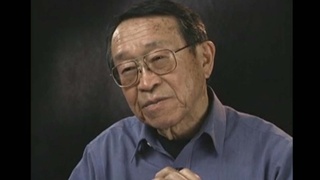The other thing was we went up to camp with the Terminal Island people. Terminal Island people were among the first family groups to go up, because they had been kicked out of Terminal Island. And the different blocks you lived in would define when you arrived—one, two, three, four. We were in Block 10, out of thirty-six. So in that range, we were about that level of entry. And Blocks 9 through 11 were Terminal Island. And the reason we went with Terminal Island people was because my mother had some friends from Terminal Island. I guess that’s from some of her missionary work. But Terminal Island (laughs) is a different culture than the rest of Issei-dom. It was an isolated community from the rest of L.A., really. So they had their own culture [and] spoke a lot of Japanese. Everyone had Japanese names.
One of the things that is surprising, when I meet these people outside after the camps, many of them had English names. And I said, “What happened to all your (laughs) Japanese names, anyway? You got this English name, and I couldn’t recognize—I guess they thought it was more politic to have an English name than a Japanese name. Not all of them, but a good many of them. And that was kind of strange. But when we first got there, we didn’t get along at all. There was a lot of conflict.
I*: Why do you think that was, or what were the conflicts about?
They had a very strong in-group, and we were part of the out-group. And little kids would call us names. They would call us, namai ki, which means you’re a pain in the neck, or worse. And that’s because we didn’t speak Japanese. Not only that, we spoke English. And not only that, we didn’t speak it with an accent. We spoke English pretty well. So that made you namai ki. (laughs) They were just little kids. But we got along after awhile. Part of it was we were just strange.
My next oldest brother, Sohei, he got along with them very well. He made good friends. He became the, what we know today, the evening television program, because he would tell stories. And after supper, a crowd of kids would come around, and say: “Tell us a story! Tell us a story!” He said, oh, okay. He just loved storytelling, and he was a great storyteller, and he really knew how to—it’s a performance and you really have to get the kids—and they’re all listening to him. And he would tell the story of Jean Valjean, [from Victor Hugo’s] Les Misérables, and they just loved it. It was a long story, because he would go through the whole thing. And he’d say one little thing: “Okay, that’s enough for tonight. Go home.” The next [night] the same thing—“Tell us a story! Tell us a story!” (laughs) So he became sort of a hero among the kids.
*"I" indicates an interviewer (Darcie Iki).








